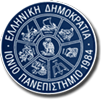Varna
Cultural clubs’ history

Author 1: ROUSSEV IVAN
Author 2: LYBERATOS ANDREAS
The earliest evidence for the establishment of a cultural club in Varna, dates from the late 1830s, when the Orthodox archbishop Iosif established the “Philomousos” club with philanthropic aims.[1]
During the Crimean War (1853-1856) the French officers in the town opened up their own club – a pleasant place for conversations, songs, playing domino. The lively trade in the town contributed to satisfying the need for luxuries and good beverages[2].
In 1860, a “Casino” was opened in the city by Leonardos Semprikos from the Ionian Island of Zante. The Casino was frequented mostly by the Greek merchants of the city. It had a library, a map collection and was supplied regular with newspapers. Very soon it became a focal point of the social life, a place for worldly conversations where Varna’s high society was reading the newspapers L’independance and L’Illustration and was supplied with contemporary European and Greek literature[3].
From the late 1830s until the first years of the 20th century, 14 Greek cultural and philanthropic clubs or associations functioned in Varna. The most important among them were: Theatrikos Omilos (theater club, 1860-1874), Filekpaideutikos Syllogos Varnis (cultural-educational club, 1872-1880), Mousikos Omilos Varnis (music club, 1870s), Filarmoniki Enosis (philharmonic club, 1894-1903), Anagnostirion ton Odissiton (reading club, 1896-1906).
In January 1879 a Bulgarian Club was established in Varna. It offered Bulgarian newspapers, magazines, and books. Theater plays were planned and put up and the income was used for supporting the Bulgarian schools. In 1881 the Bulgarian Club was closed down and ‘Krazhets na lyubitelite na literaturata’ [Circle of the lovers of literature] was founded in place of it. The latter was reorganized under the name of ‘Knizhevna druzhina’ on March 21, 1883[4].
[1] Loucatos, S., « Les villes et les regions du littoral de la mer noire comme foyer du development des relations Greco-bulgares, 1830-1860 », Актове на втория българо-гръцки симпозиум, Sofia, 1984, p. 30.
[2] Allard, C. Souvenir d’Orient. La Bulgarie orientale. Paris, 1864.
[3] Κοτζαγεώργη Ξ. (επιμ.), Οι Έλληνες της Βουλγαρίας. Ένα ιστορικό τμήμα του περιφερειακού ελληνισμού, Θεσσαλονίκη: ΙΜΧA, 1999, σ. 397; Каниц, Ф. Дунавска България и Балканът. Историческо-географско-етнографически пътеписни проучвания от 1860 до 1879 г. Т. ІІІ, София, 1995;
[4] Дряновски, Б. Варна през 1878–1944 г. – История на Варна. Т. III, Изд. „Славена“, Варна /под печат/.
References
Bibliography:
Библиография:
Allard, C. Souvenir d’Orient. La Bulgarie orientale, Paris 1864.
Каниц, Ф. Дунавска България и Балканът. Историческо-географско-етнографически пътеписни проучвания от 1860 до 1879 г. Т. ІІІ, София, 1995.
Дряновски, Б. Варна през 1878–1944 г. – История на Варна. Т. III, Изд. „Славена“, Варна, 2016.
Κοτζαγεώργη (επιμ.), Οι Έλληνες της Βουλγαρίας. Ένα ιστορικό τμήμα του περιφερειακού ελληνισμού, Θεσσαλονίκη: ΙΜΧα, 1999, σ. 397-405.
Back




